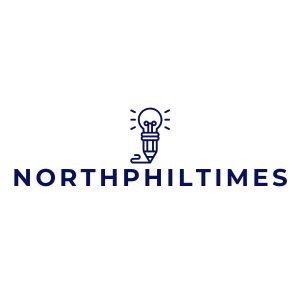Freelancing can feel like a wild ride—one moment you’re basking in the glow of a successful project, and the next, you’re dodging unexpected hiccups like a pro. But amidst the creative chaos, there’s one crucial element that often gets overlooked: insurance. Yes, that’s right! It’s not just for your neighbor’s cat or your grandma’s prized collection of porcelain frogs.
Table of Contents
ToggleUnderstanding Insurance for Freelancer
Freelancers face various risks that can impact their work and income. Having the right insurance safeguards against unexpected events.
Types of Insurance for Freelancers
Freelancers typically consider several insurance types. General liability insurance covers claims related to bodily injuries or property damage. Professional liability insurance protects against claims of negligence or inadequate services. Health insurance ensures access to necessary medical care without prohibitive costs. Additionally, business insurance protects equipment and assets used for work, while cyber liability insurance addresses data breaches and online risks. Many freelancers also explore personal liability insurance for additional coverage, depending on their specific needs.
Importance of Insurance for Freelancers
Insurance plays a critical role in a freelancer’s success. It mitigates financial loss from unforeseen circumstances, reinforcing business stability. Clients often prefer working with insured freelancers, enhancing credibility. Without insurance, freelancers risk significant financial strain from claims, lawsuits, or medical expenses. Protecting one’s health and assets allows for continued focus on projects, fostering creativity and business growth. Prioritizing insurance helps freelancers navigate challenges while maintaining peace of mind.
Common Insurance Options
Freelancers face unique challenges that make securing the right insurance crucial. Here are some common insurance options tailored for them.
General Liability Insurance
General liability insurance protects against claims of bodily injury, property damage, and personal injury. It covers costs associated with accidents that occur during the course of business activities. For example, if a client gets injured on a freelancer’s worksite, this insurance helps cover medical expenses. Such protection not only mitigates financial loss but also enhances credibility with clients, reflecting a commitment to professionalism.
Professional Liability Insurance
Professional liability insurance, often known as errors and omissions insurance, covers claims related to negligence or inadequate work. Freelancers in various fields, like graphic design or consulting, benefit from this coverage as it protects against lawsuits resulting from mistakes, missed deadlines, or unsatisfactory services. For instance, if a client claims that a freelancer’s work led to financial loss, this insurance helps cover legal fees and settlements. Such insurance is vital for maintaining client trust and ensuring business continuity.
Health Insurance
Health insurance is essential for freelancers, providing access to medical care and financial protection against health-related expenses. With many freelancers lacking employer-provided plans, securing individual health insurance helps cover doctors’ visits, hospital stays, and preventive care. Options include marketplace insurance plans or state-sponsored programs. Access to health insurance directly impacts a freelancer’s well-being, allowing them to focus on their work without health-related stress.
Disability Insurance
Disability insurance offers vital income protection for freelancers unable to work due to illness or injury. Coverage typically replaces a portion of a freelancer’s income, aiding in financial stability during recovery periods. Policies can vary, with some covering short-term disabilities and others focusing on long-term needs. Without this safety net, unforeseen circumstances could significantly impact a freelancer’s livelihood. It’s crucial for freelancers to assess their risk and choose an appropriate disability insurance plan.
Choosing the Right Insurance
Choosing the right insurance involves understanding specific needs as a freelancer. Assessing these needs enables freelancers to identify the coverage that best protects their work and finances.
Assessing Your Needs
Freelancers should start by evaluating risks associated with their specific fields. Identifying common challenges helps in determining necessary insurance types. For instance, designers may prioritize professional liability to cover potential copyright issues. Health insurance becomes crucial when considering access to medical care and protection against health-related expenses. It’s essential to think about personal circumstances as well, like family health history or potential income disruption during illness. Analyzing these factors assists in making informed decisions regarding coverage.
Comparing Policies
Comparing policies allows freelancers to find the best coverage for their needs. Reviewing different providers helps uncover various options available in the market. Understanding coverage limits, premiums, and deductibles plays an essential role in policy selection. Freelancers must consider additional features, such as client protection and consultation services, which enhance a policy’s value. Obtaining quotes from multiple insurers aids in evaluating costs and benefits effectively. Seeking reviews or ratings from other freelancers can provide insights into the reliability and customer service of insurance companies.
Costs and Budgeting
Understanding costs is crucial for freelancers securing insurance. Various factors influence insurance premiums and budgeting strategies play a significant role.
Factors Affecting Insurance Costs
Insurance costs vary based on multiple factors. Coverage type significantly impacts premiums; general liability tends to be cheaper than professional liability. Freelancer’s industry affects rates; creative fields may face higher risks. Location also matters; areas with higher claim rates see increased costs. The freelancer’s experience level can lower premiums; established professionals often benefit from lower rates. Claims history directly influences future costs; prior claims can lead to higher premiums. Lastly, bundling multiple policies often results in discounts, making it a smart financial move for freelancers.
Tips for Budgeting for Insurance
Creating a budget for insurance requires careful planning. Setting aside a specific percentage of income helps manage costs effectively, with 10 to 15 percent recommended. Researching different insurance providers allows freelancers to compare premiums and coverage options systematically. Prioritizing essential coverage first ensures foundational protection while leaving room for additional services later. Regularly reviewing needs is vital; as businesses grow, insurance needs may change. Tracking expenses allows for adjustments to the budget, ensuring funds align with changing financial situations. Lastly, consulting with a financial advisor can provide tailored guidance, enhancing overall financial strategy.
Freelancers face unique challenges that make insurance a vital component of their business strategy. By understanding their specific risks and securing the right coverage, they can protect themselves from potential financial setbacks. Insurance not only enhances credibility but also allows them to concentrate on their creative work without constant worry about unforeseen events.
Investing in appropriate insurance tailored to their needs is a proactive step toward ensuring long-term stability and success. By prioritizing insurance, freelancers can confidently navigate their careers, knowing they have a safety net in place that supports both their professional and personal well-being.





